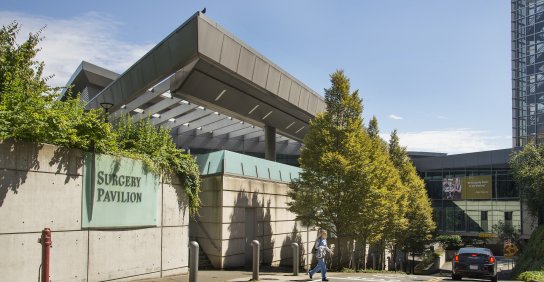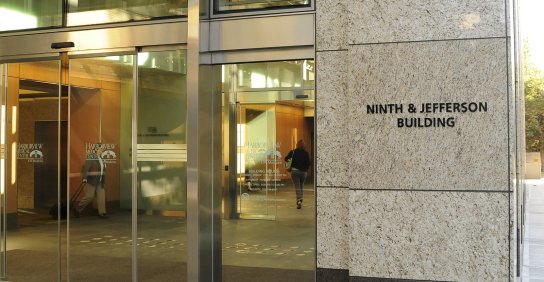For clinic appointments, visit the Surgery Pavilion,
1959 NE Pacific St., Seattle, WA 98195
Pituitary and Skull Base Tumor Care
Our experts offer advanced treatments for pituitary tumors and other skull base tumors. Learn how we’ll help you get through this.
Pituitary and Skull Base Tumor Care
Our experts offer advanced treatments for pituitary tumors and other skull base tumors. Learn how we’ll help you get through this.

Surrounding you with advanced skull base tumor care
If you have a pituitary or skull base tumor — or you’re seeking a second opinion — you can turn to UW Medicine. Our ability to diagnose and treat these complex tumors is second to none in the Northwest.
Cancerous and noncancerous tumors in the skull base can be hard to diagnose. Some grow slowly and cause few if any symptoms early on. Others cause symptoms that mimic other medical conditions. And because these tumors are so close to the eyes, nose and brain, careful treatment is critical.
Our team is experienced at identifying even tiny and rare skull base tumors. We also offer treatments that aren’t widely available. We’re the only health system in the region that offers a special type of surgery that removes pituitary tumors through the nose.
Pituitary and skull base tumors we treat
A pituitary tumor is an abnormal growth in the pituitary gland, a small gland in the brain that is found behind the back of the nose. Most pituitary tumors are noncancerous and won’t spread. But because these tumors grow on the pituitary gland — which controls hormone levels throughout your body — they can impact many bodily functions. These include growth, blood pressure, mood and menstruation. Other types of skull base tumors can be cancerous or noncancerous. They can start in the brain (primary tumor) or spread to the brain from somewhere else in the body (metastatic tumor).
Symptoms of pituitary tumors depend on the type of tumor and the area of the pituitary gland that is affected. Each person’s symptoms may vary.
We can diagnose and treat any skull base tumor, including:
ACTH-secreting tumors
These tumors cause the pituitary gland to make too much adrenocorticotropic hormone (ACTH). This leads to excess levels of a steroid called cortisol, causing a condition known as Cushing’s disease.
Nasopharyngeal carcinoma
This cancerous tumor grows in the area behind the nose and above the throat. Symptoms include unusual nasal congestion, bloody nasal discharge and frequent sore throat. It’s more common in people from Southeast Asia.
Growth hormone-secreting tumors
These tumors cause the pituitary gland to make too much growth hormone. This can trigger conditions in children (gigantism) and adults (acromegaly). The whole body, or parts of the body, grows larger than normal.
Prolactinomas
These tumors cause the pituitary gland to make too much of a hormone called prolactin. Extra prolactin impacts estrogen in women and testosterone in men. Symptoms include irregular menstruation and infertility.
Find out more about pituitary tumors and treatment options
UW Medicine Pituitary Program locations

Pituitary Program at UW Medical Center – Montlake

Neurological Surgery Clinic at Harborview
For clinic appointments, visit the Ninth & Jefferson Building, 908 Jefferson St., 5th Floor, Seattle, WA 98104
Advanced treatments and procedures we offer
At UW Medicine, our pituitary specialists are experts at diagnosing, treating and curing pituitary tumors and hypothalamic disorders. Our neurosurgeons specialize in pituitary and skull base tumors and use Endoscopic Transnasal Transphenoidal Surgery (ETTS), a minimally invasive procedure in which your surgeon uses an angled endoscope to remove the pituitary tumor. ETTS is useful in treating some of the most complex pituitary tumors.
Comprehensive treatments and procedures we offer include:
-
Chemotherapy
-
Gamma knife radiosurgery
-
Hormone replacement therapy
-
Immunotherapies
-
Proton beam therapy
-
Whole-brain radiation therapy
Patient resources and support

MyChart patient portal
Schedule and manage appointments, pay bills and see test results with MyChart, our online patient portal.

Telemedicine visits
We bring your UW Medicine neurologist or neurosurgeon to you by secure video, from the comfort of your own home. These telemedicine visits are for non-emergent and follow-up care.

Clinical trials
Our patients have access to new, experimental treatments for certain skull base tumors.
